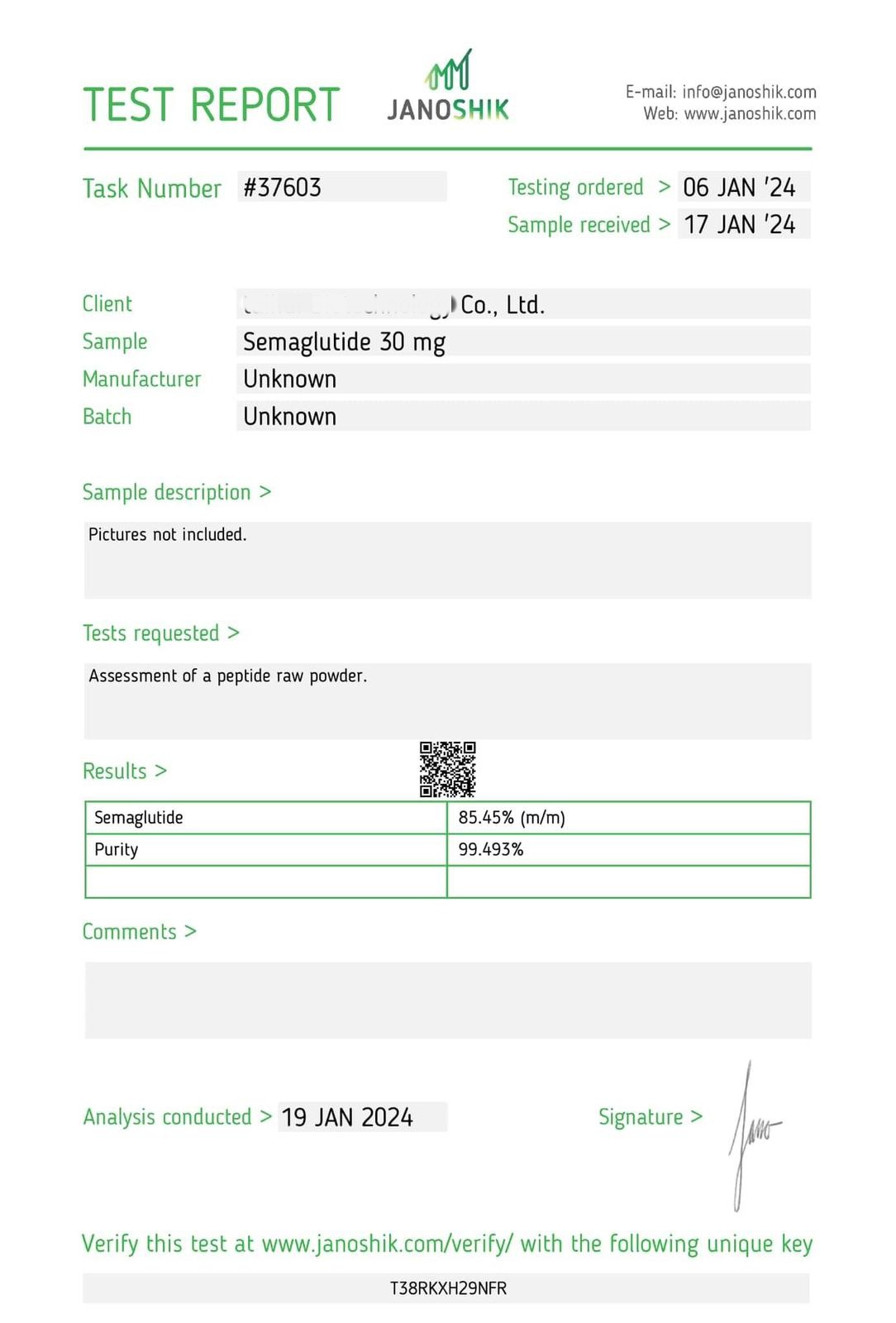semaglutide is a long-acting GLP-1 receptor agonist (GLP-1RA).
GLP-1RA activates the GLP-1 receptor by mimicking natural GLP-1, enhances insulin secretion and inhibits glucagon secretion in a glucose concentration-dependent manner, delays gastric emptying, and reduces the amount of food consumed through centralized appetite suppression, resulting in blood glucose lowering and weight loss.
Semaglutide pen Benefits
Significant glucose-lowering effect
The 2021 American Diabetes Association (ADA) Standards of Care recommended glucose-lowering regimen also suggests that GLP-1RA may be used independently of metformin, regardless of baseline HbA1c levels, if the patient has ASCVD, or is at high risk for ASCVD, or has heart failure, or has CKD.
Semaglutide pen Weight Loss
In the results of the STEP Phase 3a clinical trial study published in the New England Journal of Medicine (NEJM), the findings showed that Semaglutide had an outstanding effect on weight loss. In the trial conducted in a non-diabetic population, which involved more than 4,500 obese or overweight adult patients without type 2 diabetes, obese patients treated with Semaglutide lost a mean weight of 17-1,500 pounds in 68 Obese patients treated with Semaglutide lost an average of 17-18% of their body weight in 68 weeks, and the trial was shown to be safe and well tolerated.
Cardiovascular Benefits
In addition to its significant glucose-lowering effect, the SUSTAIN 6 study demonstrated that Semaglutide has a significant beneficial effect on cardiovascular outcomes in patients with type 2 diabetes, significantly reducing the risk of major adverse cardiovascular events by 26% and the risk of non-fatal strokes by 39% compared to placebo, as well as significantly improving multiple markers of body weight, blood pressure, and lipids, resulting in comprehensive cardiovascular and metabolic benefits to patients. metabolic benefits for patients.
Semaglutide pen Dosage
Semaglutide was initiated at a dose of 0.25 mg once weekly and increased to 0.5 mg once weekly after 4 weeks. After at least 4 weeks of treatment with 0.5 mg weekly, the dose may be increased to 1 mg weekly. Doses greater than 1mg per week are not recommended.
Semaglutide pen Side effects
Some common side effects of Semaglutide include: nausea, vomiting, diarrhea, abdominal pain, and constipation may occur.
Less common but serious side effects of Semaglutide include: kidney problems, diabetic retinopathy, allergic reactions, low blood sugar, and pancreatitis.
In people with heart problems, it can cause damage to the back of the eye (retinopathy). If you experience any of these serious side effects, contact your healthcare provider immediately.
in vivo The plasma half-life is 46.1 h in mini-pigs following i.v. administration, and semaglutide has an MRT of 63.6 h after s.c. dosing to mini-pigs.
Avoid semaglutide pen if you have: History of medullary thyroid cancer; History of gallbladder disease; History of pancreatitis; Multiple endocrine neoplasia syndrome type 2 (MEN2).
More Introduction:https://en.wikipedia.org/wiki/Semaglutide










